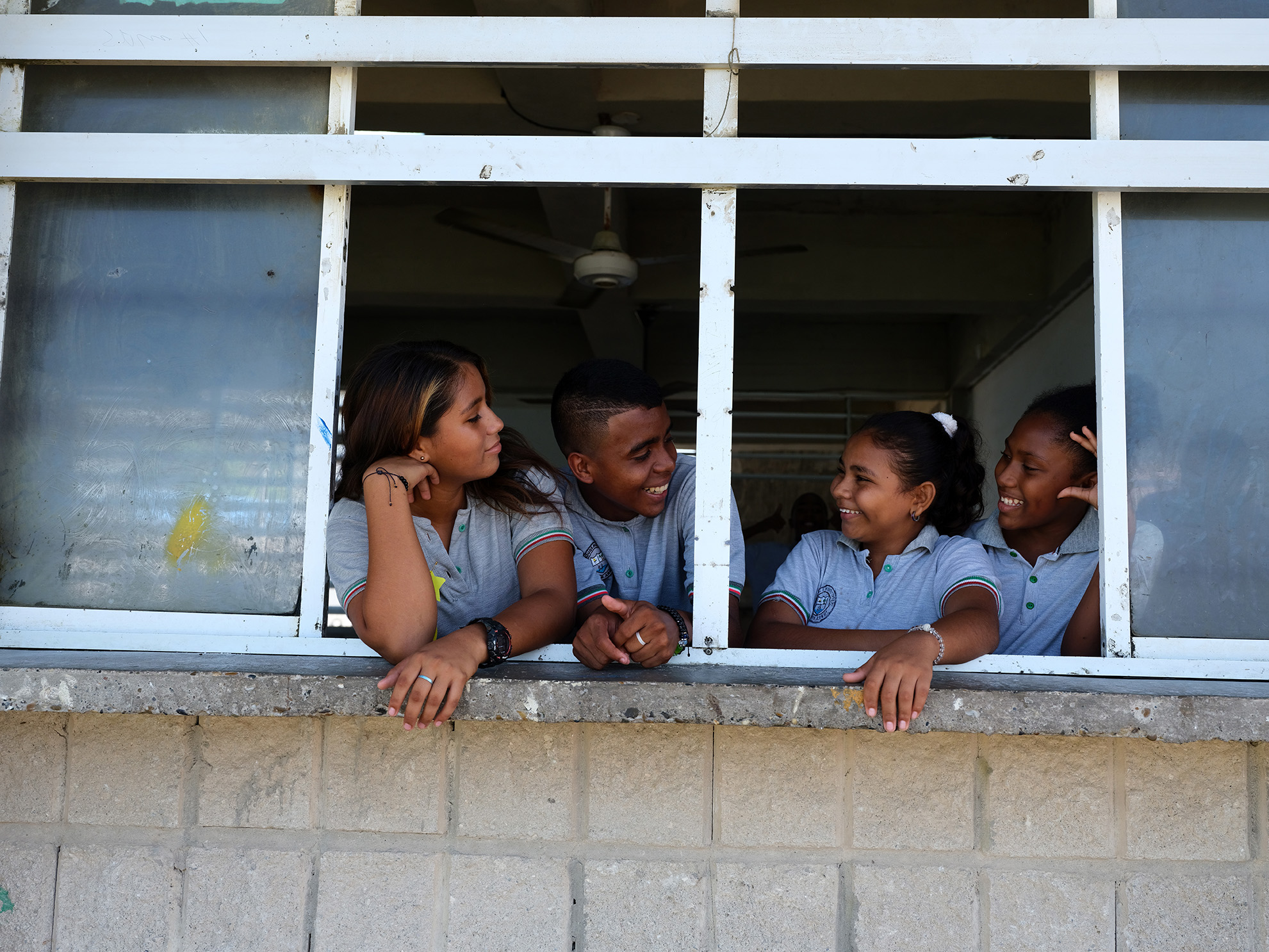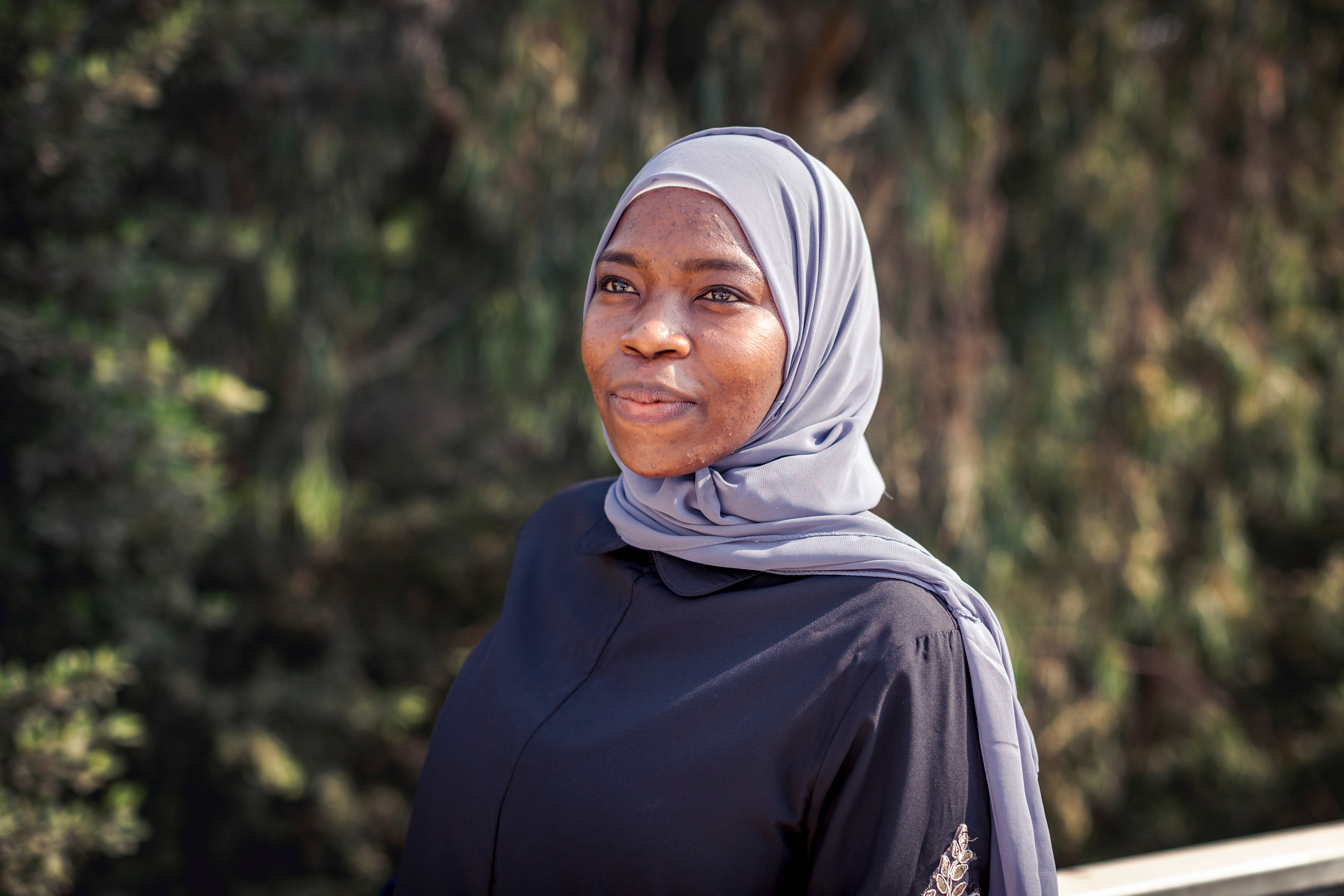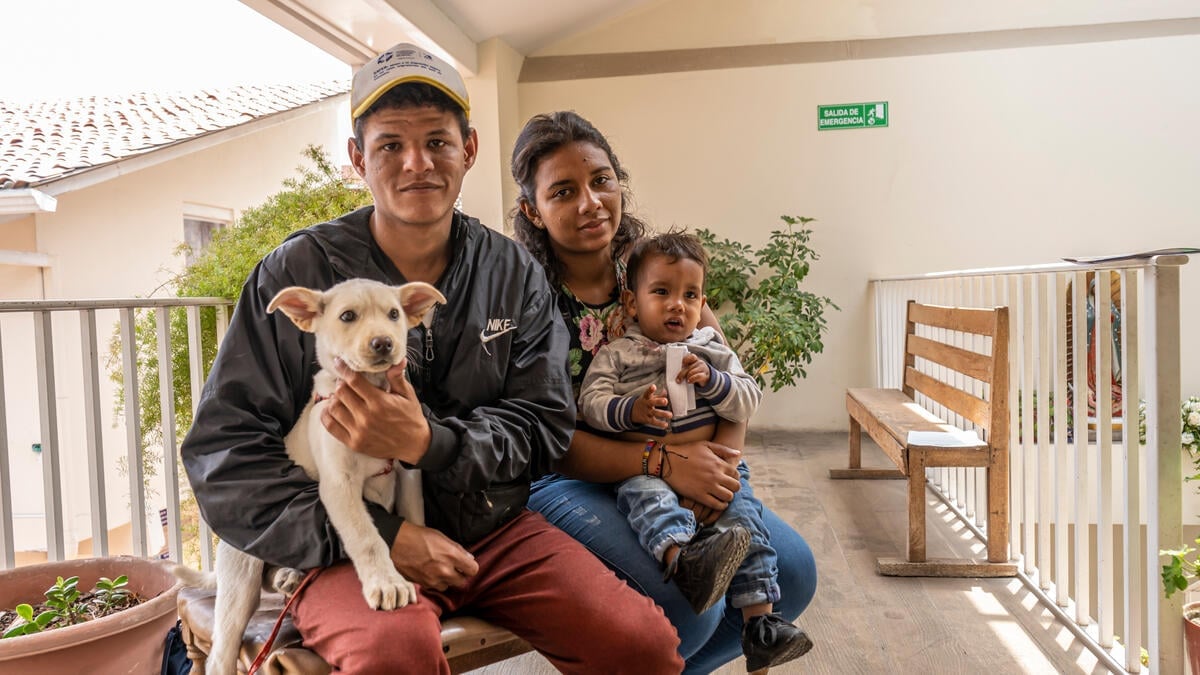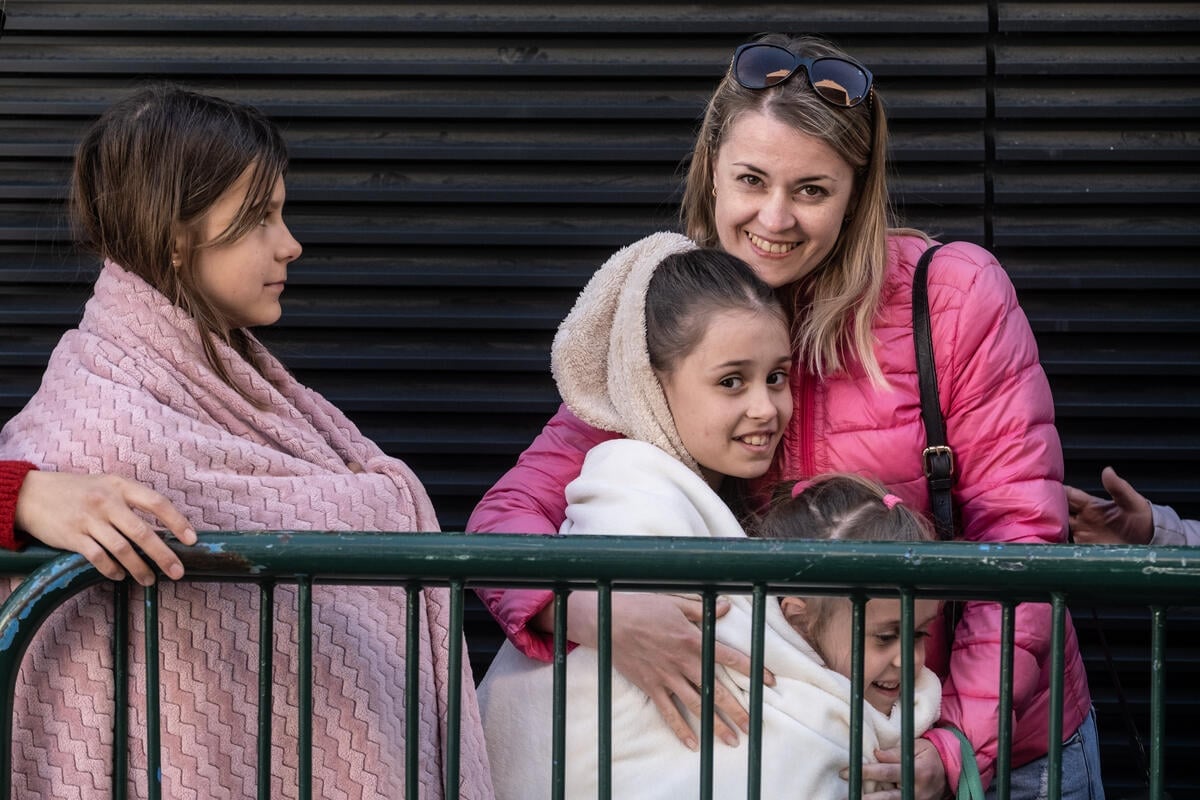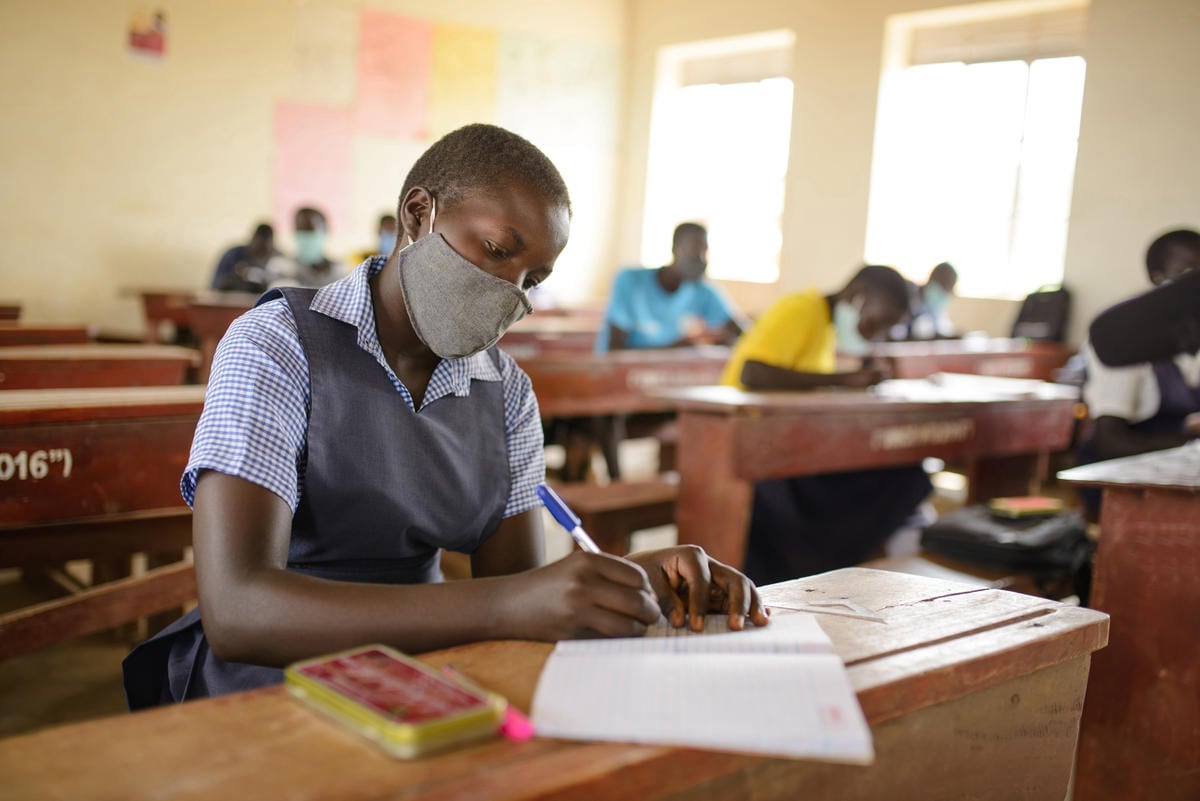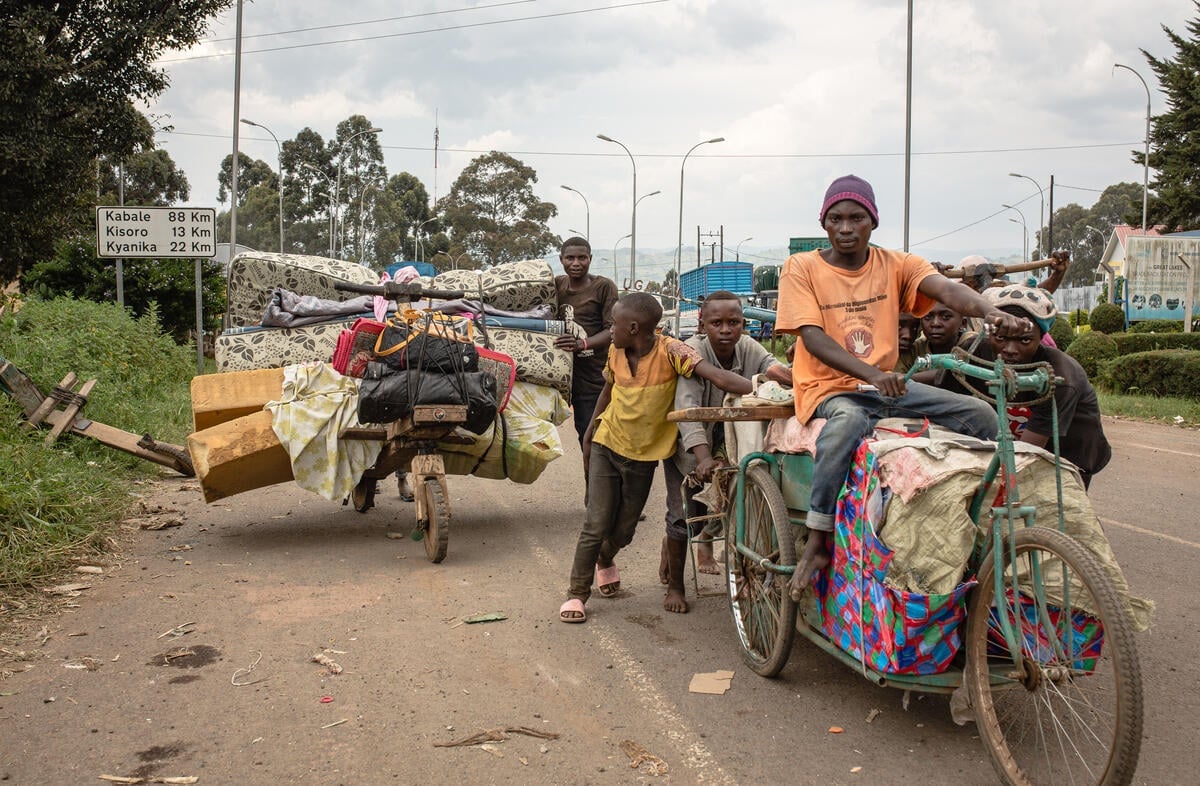Sharing knowledge to help fellow refugees: a volunteer's story in Ecuador
Sharing knowledge to help fellow refugees: a volunteer's story in Ecuador

LAGO AGRIO, Ecuador, 3 May (UNHCR) - Diocelina spends most of her days running from one place to another in Lago Agrio, the small Ecuadorian town where she sought refuge three years ago. As well as being the mother of a small child, the 25-year-old Colombian is one of 24 refugees in Ecuador to have received a scholarship from the Albert Einstein German Academic Refugee Initiative Fund (DAFI). For the past 18 months, she has been studying at the local university for a diploma in Information Technology, and this past month she has been busier than usual with homework and preparing for her exams.
The DAFI Scholarships Programme is a worldwide initiative to give refugees the chance of pursuing tertiary education in their country of asylum. It is funded by the German government and managed by UNHCR. The programme aims to promote self-sufficiency among refugees by boosting their chances of employment. It also seeks to encourage refugee girls and women to continue with their education. Every year, an average of some 1,000 refugees worldwide receive a DAFI scholarship, and Ecuador has the largest number of beneficiaries in Latin America.
"In Ecuador, I have found peace and the chance to move on with my life," says Diocelina, who comes from Putumayo, a Colombian department with a high level of violence linked to the country's internal armed conflict. "The scholarship has given me opportunities and hopes for the future I could not have dreamt of before."
Even though her studies have kept her very busy, Diocelina felt the need to share some of her knowledge with other people. When she heard that UNHCR needed a volunteer teacher to provide basic computer training to a group of Colombian refugees and local Ecuadorians, she did not hesitate to take on the challenge.
"I started by teaching them the basics," she says, "how to turn on a computer, how to use the word-processing and data-processing programmes. After that, we moved on and started working on writing letters, invoices and other documents they use in their daily life."
To reach that level is a remarkable achievement for her nine students, who only recently completed an adult literacy course run by a UNHCR partner agency, HIAS (the Hebrew Immigrant Aid Society).
"Learning how to read and write at my age has been like a miracle," says Jorge, a man in his thirties. "I used to be so ashamed of not being able to help my children with their homework and to depend on them for paperwork and that sort of thing."
Jorge, and everyone else who completed the literacy course, has now received a diploma recognised by the Ministry of Education. Jorge himself is not a refugee but a local Ecuadorian - many of the programmes UNHCR funds in Lago Agrio, a frontier town with a large Colombian population, benefit both the local population and refugees.
"Ecuador's northern region is one of the poorest and least-developed in the country," says Angel Granja, UNHCR's Programme Assistant in Ecuador, "and is home to many Colombians who are of concern to UNHCR. In such a context, our projects seek to strengthen the receiving community as well as the refugee population, and we also find that joint projects help to generate an atmosphere of trust between Colombians and Ecuadorians and to promote better integration of refugees in the local population."
Álvaro is one of the Colombian refugees attending Diocelina's computer training. He is working on a Microsoft Word document that details the services he provides - plumbing, electrical repairs, masonry - as well as his contact information. Before, he explains, he had to go to an Internet Café to do this and it cost him money, especially as he did not know how to use the computer properly. Álvaro arrived in Ecuador five years ago and has been doing building work and whatever occasional jobs he can find to support his family of eight children.
"As a matter of fact," he corrects himself after a while, "my wife and I have nine children. But one of them disappeared in Colombia just before we left. Since then, we have not heard from him."
Like all the students, Álvaro is thankful to Diocelina and admires her for volunteering her time, but she says the experience has been a very enriching one for her too.
"Sharing what I have learnt has helped me to deepen my knowledge, because it forces me to review every aspect of the computer programmes. It is also good training for me because I would like to become a teacher, maybe a university teacher one day. First, I want to apply my skills in an enterprise and then hopefully go back to university."
Like Diocelina, the other 23 DAFI scholars scattered in Ecuador - mainly in Quito, Ibarra and Lago Agrio - carry out other volunteer activities under HIAS supervision to help refugees and the communities in which they live.
"Last year, they were instrumental in organising World Refugee Day events and raising awareness about refugee issues in the population," says Graciela Muñoz, who works for HIAS in Lago Agrio. "This year, they are also planning activities for the same occasion. Sharing with others is part of the spirit of the DAFI programme."
By Xavier Orellana in Lago Agrio, Ecuador


